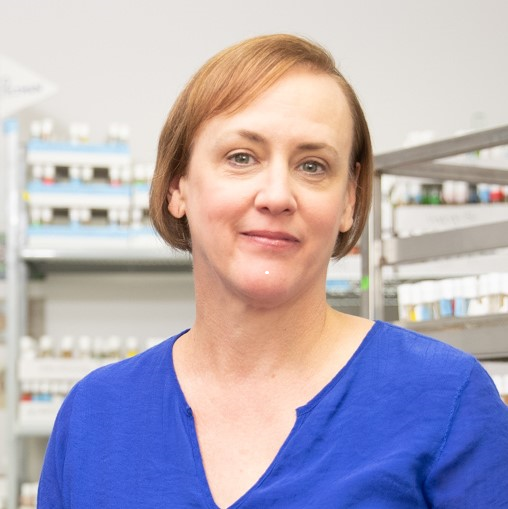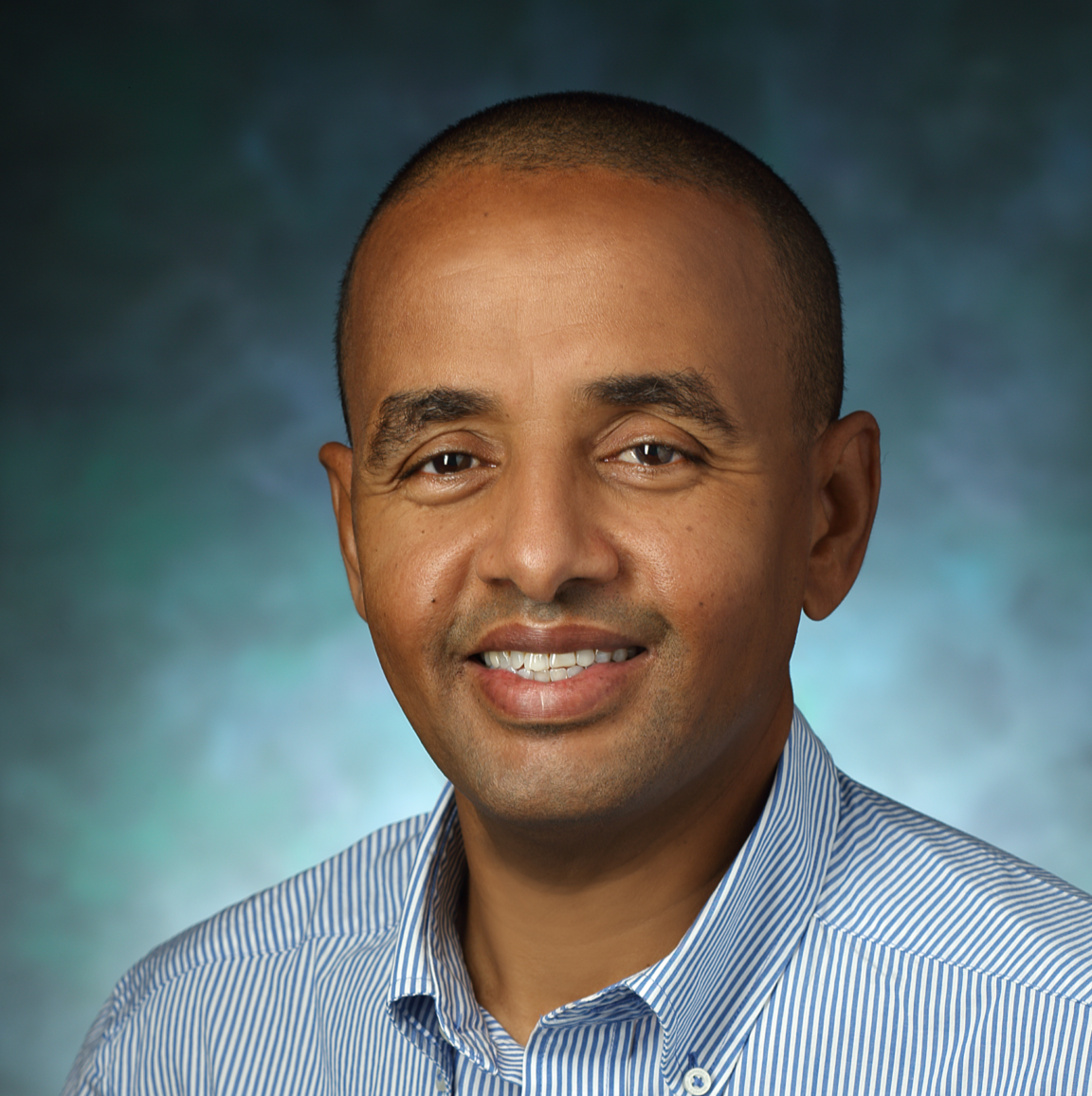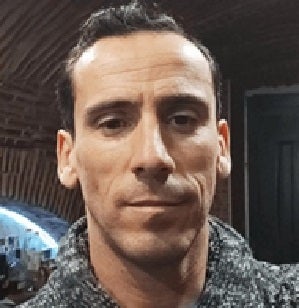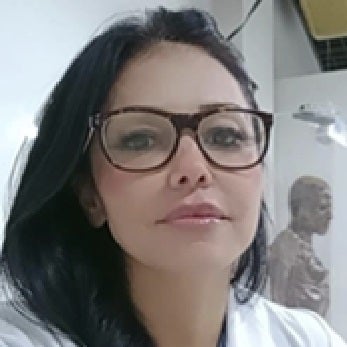We invite you to join us at our first annual Neuroscience Day! Enjoy insightful talks from international experts with research poster presentations from both faculty and students. There will be food and networking with industry professionals. The event is free and open to the public. Registered attendees will get free parking.
April 10, 2025
Stueckle Sky Center
Event Schedule
Invited Speakers
-

Julie K. Andersen, Ph.D
Buck Institute for Research on Aging
Dr. Andersen received her PhD from the Department of Biological Chemistry in the David Geffen School of Medicine at the University of California, Los Angeles. She received additional research training in the Department of Neurogenetics at Massachusetts General Hospital in Boston. Prior to arriving at the Buck Institute, Dr. Andersen held a faculty position in the School of Gerontology at the University of Southern California.
Dr. Andersen has published more than 170 scientific papers and holds three current patents. She has been recognized for her research with a Parkinson’s Pioneer Award from the National Parkinson’s Foundation, a Glenn Award for Research in Biological Mechanisms of Aging, and a senior scholarship from the Ellison Medical Foundation. She was elected a fellow of the Society for Free Radicals in Biology and Medicine in 2013. She currently serves on the scientific advisory board for the University of Pittsburgh Medical Center’s Biology of Aging Program, on the editorial board of e-Neuro (Journal of Neuroscience’s e-journal), as a member of the Brookdale Institute on Aging, and as a council member for the Society of Neurotoxicity. Dr. Andersen has extensive experience working with both biotech companies and medical foundations, including Roche, the Michael J. Fox Foundation, the National Parkinson’s Disease Foundation, and the American Parkinson’s Disease Foundation.
Dr. Andersen received her PhD from the Department of Biological Chemistry in the David Geffen School of Medicine at the University of California, Los Angeles. She received additional research training in the Department of Neurogenetics at Massachusetts General Hospital in Boston. Prior to arriving at the Buck Institute, Dr. Andersen held a faculty position in the School of Gerontology at the University of Southern California.
Dr. Andersen has published more than 170 scientific papers and holds three current patents. She has been recognized for her research with a Parkinson’s Pioneer Award from the National Parkinson’s Foundation, a Glenn Award for Research in Biological Mechanisms of Aging, and a senior scholarship from the Ellison Medical Foundation. She was elected a fellow of the Society for Free Radicals in Biology and Medicine in 2013. She currently serves on the scientific advisory board for the University of Pittsburgh Medical Center’s Biology of Aging Program, on the editorial board of e-Neuro (Journal of Neuroscience’s e-journal), as a member of the Brookdale Institute on Aging, and as a council member for the Society of Neurotoxicity. Dr. Andersen has extensive experience working with both biotech companies and medical foundations, including Roche, the Michael J. Fox Foundation, the National Parkinson’s Disease Foundation, and the American Parkinson’s Disease Foundation.
-

Mohamed H. Farah, Ph.D.
Johns Hopkins School of Medicine
Dr. Mohamed H. Farah is an associate professor in the department of neurology as well as the department of neuroscience at The Johns Hopkins University School of Medicine in Baltimore, Maryland.
The Mohamed Farah Lab studies axonal regeneration in the peripheral nervous system. His team is currently engaged in systematically exploring genetic manipulations of BACE1 substrates in regard to accelerated axonal regeneration and rapid myelin debris removal seen in BACE1 KO mice.
Dr. Farah received his undergraduate degree in biochemistry from Virginia Tech in Blacksburg, Virginia. He earned his PhD in neuroscience from the University of Michigan in Ann Arbor, Michigan. He completed a postdoctoral fellowship in the department of pathology at The Johns Hopkins University School of Medicine. Dr. Farah joined the Johns Hopkins faculty in 2006.
Dr. Mohamed H. Farah is an associate professor in the department of neurology as well as the department of neuroscience at The Johns Hopkins University School of Medicine in Baltimore, Maryland.
The Mohamed Farah Lab studies axonal regeneration in the peripheral nervous system. His team is currently engaged in systematically exploring genetic manipulations of BACE1 substrates in regard to accelerated axonal regeneration and rapid myelin debris removal seen in BACE1 KO mice.
Dr. Farah received his undergraduate degree in biochemistry from Virginia Tech in Blacksburg, Virginia. He earned his PhD in neuroscience from the University of Michigan in Ann Arbor, Michigan. He completed a postdoctoral fellowship in the department of pathology at The Johns Hopkins University School of Medicine. Dr. Farah joined the Johns Hopkins faculty in 2006.
-

Anna Hudson, Ph.D.
Flinders University
Dr Anna Hudson is a Senior Research Fellow at Flinders University. Her research aims to understand respiratory physiology, respiratory motor impairment and breathlessness (aka dyspnoea), in health, healthy ageing and chronic obstructive pulmonary disease. She uses a multi-faceted approach to investigate the neural control of breathing such as electromyography to assess respiratory muscle activity, electroencephalography to assess brain activity and respiratory sensation and ultrasound for respiratory muscle mechanics. She conducts laboratory-based research in healthy and clinical populations with local, national and international collaborators.
Dr Anna Hudson is a Senior Research Fellow at Flinders University. Her research aims to understand respiratory physiology, respiratory motor impairment and breathlessness (aka dyspnoea), in health, healthy ageing and chronic obstructive pulmonary disease. She uses a multi-faceted approach to investigate the neural control of breathing such as electromyography to assess respiratory muscle activity, electroencephalography to assess brain activity and respiratory sensation and ultrasound for respiratory muscle mechanics. She conducts laboratory-based research in healthy and clinical populations with local, national and international collaborators.
-

Jose Parraca, Ph.D.
University of Evora
José Alberto Frade Martins Parraça completed a Degree in Sports Science in 2006 at the University of Évora, a Master in “Ejercicio e Salud” in 2010 at the “Universidad Internacional de Andalucía”, and a PhD in Physiology in 2012 at the “Universidad de Extremadura.”
José Alberto Frade Martins Parraça completed a Degree in Sports Science in 2006 at the University of Évora, a Master in “Ejercicio e Salud” in 2010 at the “Universidad Internacional de Andalucía”, and a PhD in Physiology in 2012 at the “Universidad de Extremadura.”
-

Camila Vorkapic, Ph.D.
UNIT | UniRio | FAPERJ
Dr. Vorkapic is a neuroscientist and biologist who holds a PhD in Psychology from the Institute of Psychology (Federal University of Rio de Janeiro|UFRJ) and three post doctoral fellowships (Neurophysiology – CCS/UFS, Neuroscience – DCM/UFRJ and Neuroimaging – UniRio/HUGG/FAPERJ, current). She is coordinator of the research line in Neuroscience and Mental Health at the Human Motricity Biosciences Laboratory at Unit (Brazil), Associate Professor of Neuroanatomy at the Faculty of Medicine (Unit, Brazil), and Associate researcher for the Rio de Janeiro State Research Foundation (FAPERJ). Dr. Vorkapic is a speaker, writer, author of books, scientific and science promotion articles, for which she received the João Ribeiro Prize for Scientific Promotion for two consecutive years, granted by the Sergipe State Research Foundation (FAPITEC).
Dr. Vorkapic is a neuroscientist and biologist who holds a PhD in Psychology from the Institute of Psychology (Federal University of Rio de Janeiro|UFRJ) and three post doctoral fellowships (Neurophysiology – CCS/UFS, Neuroscience – DCM/UFRJ and Neuroimaging – UniRio/HUGG/FAPERJ, current). She is coordinator of the research line in Neuroscience and Mental Health at the Human Motricity Biosciences Laboratory at Unit (Brazil), Associate Professor of Neuroanatomy at the Faculty of Medicine (Unit, Brazil), and Associate researcher for the Rio de Janeiro State Research Foundation (FAPERJ). Dr. Vorkapic is a speaker, writer, author of books, scientific and science promotion articles, for which she received the João Ribeiro Prize for Scientific Promotion for two consecutive years, granted by the Sergipe State Research Foundation (FAPITEC).
-

Monika Wiech, Ph.D.
Gdansk University of Physical Education and Sport
Professor Wiech is an Assistant Professor at the Gdansk University of Physical Education and Sport and the President of the University of the Third Age of Physical Education and Sport in Gdansk, Poland. She is a Professor of Physical Culture Sciences, specializing in the health-related training of the Elderly. She is experienced at many forms of physical activity for Seniors. Interested in methods and techniques of human body regeneration as well as aqua fitness for all age groups.
Professor Wiech is an Assistant Professor at the Gdansk University of Physical Education and Sport and the President of the University of the Third Age of Physical Education and Sport in Gdansk, Poland. She is a Professor of Physical Culture Sciences, specializing in the health-related training of the Elderly. She is experienced at many forms of physical activity for Seniors. Interested in methods and techniques of human body regeneration as well as aqua fitness for all age groups.